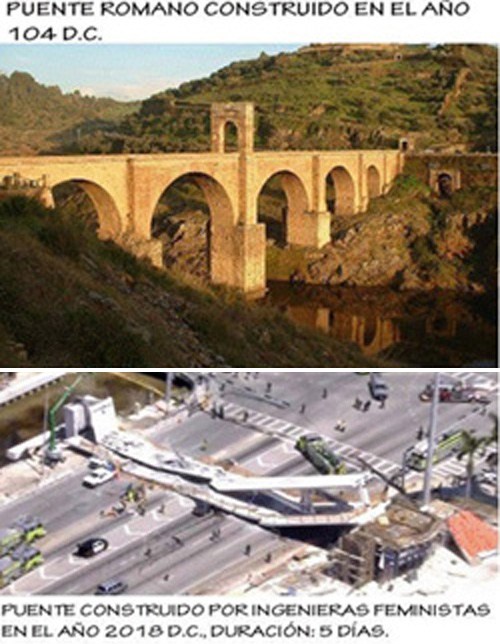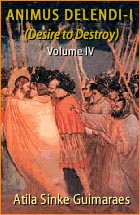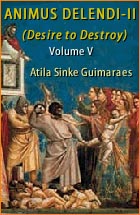What People Are Commenting
New Morals, Good Tattoos & No Hell
‘Feminist’ Bridge Collapses
TIA,
A walking bridge over a freeway in Florida fell down as it was being prepared to be delivered to the public. According to this source, the architects were all women, who claimed that their initiative was to show how feminism is efficient in the engineering business.
It didn't work. Let's hope next time they will do better...
A.P.

A walking bridge over a freeway in Florida fell down as it was being prepared to be delivered to the public. According to this source, the architects were all women, who claimed that their initiative was to show how feminism is efficient in the engineering business.
It didn't work. Let's hope next time they will do better...
A.P.

______________________
Pope Approves Tattoos
TIA,
So, Francis contradicted another teaching of the Church about not defacing the body like pagans. Instead of condemning tattoos he told youth not to be afraid of them.
See here.
In a meeting with youth delegates gathered with Francis on March 19 at the Legionaries of Christ's Maria Mater Ecclesia College in Rome, a seminarian from Ukraine, asked about tattoos.
Yulian Vendzilovych, a seminarian at Holy Spirit Seminary in Lviv, asked the pope how a young priest is to judge which parts of modern culture are good and which are not. He used the example of tattoos, which many young people believe “express true beauty,” he said.
“Don't be afraid of tattoos,” the pope responded, noting that for centuries Eritrean Christians and others have gotten tattoos of the cross.
“Of course, there can be exaggerations,” the pope said. But a tattoo “is a sign of belonging,” and asking a young person about his or her tattoos can be a great place to begin a dialogue about priorities, values, belonging, “and then you can approach the culture of the young.”
M.G.
So, Francis contradicted another teaching of the Church about not defacing the body like pagans. Instead of condemning tattoos he told youth not to be afraid of them.
See here.
In a meeting with youth delegates gathered with Francis on March 19 at the Legionaries of Christ's Maria Mater Ecclesia College in Rome, a seminarian from Ukraine, asked about tattoos.
Yulian Vendzilovych, a seminarian at Holy Spirit Seminary in Lviv, asked the pope how a young priest is to judge which parts of modern culture are good and which are not. He used the example of tattoos, which many young people believe “express true beauty,” he said.
“Don't be afraid of tattoos,” the pope responded, noting that for centuries Eritrean Christians and others have gotten tattoos of the cross.
“Of course, there can be exaggerations,” the pope said. But a tattoo “is a sign of belonging,” and asking a young person about his or her tattoos can be a great place to begin a dialogue about priorities, values, belonging, “and then you can approach the culture of the young.”
M.G.
______________________
Lack of Perspective
Hello,
Re: "Please, don't call Protestants Christians"
Can you please help?
I read the above article and have a question about this paragraph:
"He who hears you (Peter) hears me, and he who rejects you, rejects me, and he who rejects me, rejects him who sent me (Lk 10:16)." It could not be clearer: the Protestant who rejects the head, rejects Christ himself, and should not be granted the name Christian.
Luke 10:16 DRV -- When reading the passage, Christ seems to be addressing the 72 disciples He has sent out to preach and heal people. The entire chapter seems to have context or reference specifically around the 72 disciples.
What translation does Marian T. Horvat, Ph.D, find the Apostle Peter referenced as being addressed by Christ?
Thank you.
D.C.
TIA responds:
Hello D.C.,
The meeting of Our Lord Jesus Christ with the 72 Disciples reported in this passage of St. Luke (Lk 10:16), is normally read in connection with another similar meeting reported by the same Evangelist in an earlier (6:13-16). In which Our Lord chose the 12 Apostles. The powers He gave to the 72 Disciples are analogous to those referred to by St. Matthew (Mt 10:1-41). It was on this latter occasion that Our Lord established the primacy of Peter (10:2) and gave the mission of the Apostles, affirming a similar thing: “He who receives you receives me, and he who receives me receives him who sent me.” (10:40)
Given the extraordinary similarity of the three reports, it is usual in the Catholic Church to read and interpret them as a harmonic ensemble and to attribute those words Dr. Horvat quoted to the whole of the Disciples, to the college of the Apostles or to Peter in particular.
Cordially,
TIA correspondence desk
Re: "Please, don't call Protestants Christians"
Can you please help?
I read the above article and have a question about this paragraph:
"He who hears you (Peter) hears me, and he who rejects you, rejects me, and he who rejects me, rejects him who sent me (Lk 10:16)." It could not be clearer: the Protestant who rejects the head, rejects Christ himself, and should not be granted the name Christian.
Luke 10:16 DRV -- When reading the passage, Christ seems to be addressing the 72 disciples He has sent out to preach and heal people. The entire chapter seems to have context or reference specifically around the 72 disciples.
What translation does Marian T. Horvat, Ph.D, find the Apostle Peter referenced as being addressed by Christ?
Thank you.
D.C.
______________________
TIA responds:
Hello D.C.,
The meeting of Our Lord Jesus Christ with the 72 Disciples reported in this passage of St. Luke (Lk 10:16), is normally read in connection with another similar meeting reported by the same Evangelist in an earlier (6:13-16). In which Our Lord chose the 12 Apostles. The powers He gave to the 72 Disciples are analogous to those referred to by St. Matthew (Mt 10:1-41). It was on this latter occasion that Our Lord established the primacy of Peter (10:2) and gave the mission of the Apostles, affirming a similar thing: “He who receives you receives me, and he who receives me receives him who sent me.” (10:40)
Given the extraordinary similarity of the three reports, it is usual in the Catholic Church to read and interpret them as a harmonic ensemble and to attribute those words Dr. Horvat quoted to the whole of the Disciples, to the college of the Apostles or to Peter in particular.
Cordially,
TIA correspondence desk
______________________
Papal Denial of Hell
Dear TIA,
I treasure your take on Catholic doctrine. This is why I ask you a question.
As you know, Pope Francis recently affirmed that Hell does not exist. I am sending you some links reporting it (here, here and here). I have some friends that are asking me about it. Could you give me an orientation on what to think and say?
Thank you for your answer and for all you do for the Catholic Church.
In Jesus and Mary,
E.M.
TIA responds:
Dear E.M.,
Thank you for your consideration.
This papal affirmation made public by Eugenio Scalfari, the editor of the newspaper La Repubblica who has interviewed Pope Francis several times, is most probably objective. It is raising a lot of dust in public opinion around the world to the point that even The New York Times posted it.
Also, some Vatican Cardinals took a position against that declaration, as reported here.
The Vatican first fiddled about without saying anything, then, it denied this statement.
Nonetheless, we believe it is objective and that Francis is playing another of his dialectical-clownish games of denying the Catholic dogma and, then, denying the denial.
He has done this many times such as in his statements on homosexuality, pre-marital cohabitation, contraception, married priests and communion for the divorced, to mention just a few. As we know, the more a circus performer astonishes his audience with surprising feats, the more popular he becomes. This is why Pope Francis is always looking for another surprise.
This dialectical-clownish tactic has been very efficient for Progressivism to advance its agenda. So, Francis remains in his place doing what he does with the full support of the “conservative” Benedict XVI, who recently assured us that Francis is a sound theologian…
So far, these comments have addressed the tactic of affirming/denying, and its constant use by progressivists.
Now, what can be said about the denial of Hell?
In this regard, Francis did not innovate. John Paul II already said something similar when he stated that Hell and Heaven are states of mind rather than physical places (here and here).
Benedict XVI also wrote that Heaven is not a place but a presence of God among men. On another occasion he denied the existence of Limbo.
Francis himself on other occasions had already denied Heaven, Hell and Purgatory altogether.
The conclusion is that when Francis, speaking through Scalfari’s mouth, states that Hell doesn’t exist, he is reaffirming Progressivism’s agenda. In other words, the post-conciliar progressivist Popes are “teaching” Catholics to not believe in the Last Things. This translates: "Catholics, you should live exclusively for this world."
This is our take on the recent Scalfari-Francis statement that Hell does not exist.
Cordially,
TIA correspondence desk
I treasure your take on Catholic doctrine. This is why I ask you a question.
As you know, Pope Francis recently affirmed that Hell does not exist. I am sending you some links reporting it (here, here and here). I have some friends that are asking me about it. Could you give me an orientation on what to think and say?
Thank you for your answer and for all you do for the Catholic Church.
In Jesus and Mary,
E.M.
______________________
TIA responds:
Dear E.M.,
Thank you for your consideration.
This papal affirmation made public by Eugenio Scalfari, the editor of the newspaper La Repubblica who has interviewed Pope Francis several times, is most probably objective. It is raising a lot of dust in public opinion around the world to the point that even The New York Times posted it.
Also, some Vatican Cardinals took a position against that declaration, as reported here.
The Vatican first fiddled about without saying anything, then, it denied this statement.
Nonetheless, we believe it is objective and that Francis is playing another of his dialectical-clownish games of denying the Catholic dogma and, then, denying the denial.
He has done this many times such as in his statements on homosexuality, pre-marital cohabitation, contraception, married priests and communion for the divorced, to mention just a few. As we know, the more a circus performer astonishes his audience with surprising feats, the more popular he becomes. This is why Pope Francis is always looking for another surprise.
This dialectical-clownish tactic has been very efficient for Progressivism to advance its agenda. So, Francis remains in his place doing what he does with the full support of the “conservative” Benedict XVI, who recently assured us that Francis is a sound theologian…
So far, these comments have addressed the tactic of affirming/denying, and its constant use by progressivists.
Now, what can be said about the denial of Hell?
In this regard, Francis did not innovate. John Paul II already said something similar when he stated that Hell and Heaven are states of mind rather than physical places (here and here).
Benedict XVI also wrote that Heaven is not a place but a presence of God among men. On another occasion he denied the existence of Limbo.
Francis himself on other occasions had already denied Heaven, Hell and Purgatory altogether.
The conclusion is that when Francis, speaking through Scalfari’s mouth, states that Hell doesn’t exist, he is reaffirming Progressivism’s agenda. In other words, the post-conciliar progressivist Popes are “teaching” Catholics to not believe in the Last Things. This translates: "Catholics, you should live exclusively for this world."
This is our take on the recent Scalfari-Francis statement that Hell does not exist.
Cordially,
TIA correspondence desk

Posted April 5, 2018
______________________
The opinions expressed in this section - What People Are Commenting - do not necessarily express those of TIA
______________________
______________________
 Volume I |
 Volume II |
 Volume III |
 Volume IV |
 Volume V |
 Volume VI |
 Volume VII |
 Volume VIII |
 Volume IX |
 Volume X |
 Volume XI |
 Special Edition |











Re: Update on the Synod on Youth
Now we have teenagers forming Catholic Doctrine!!! Ages 16 to 29, WOW! I guess we should all be impressed at what they think the Church should be.
J.J.